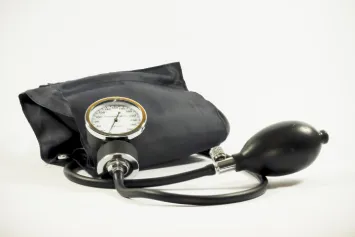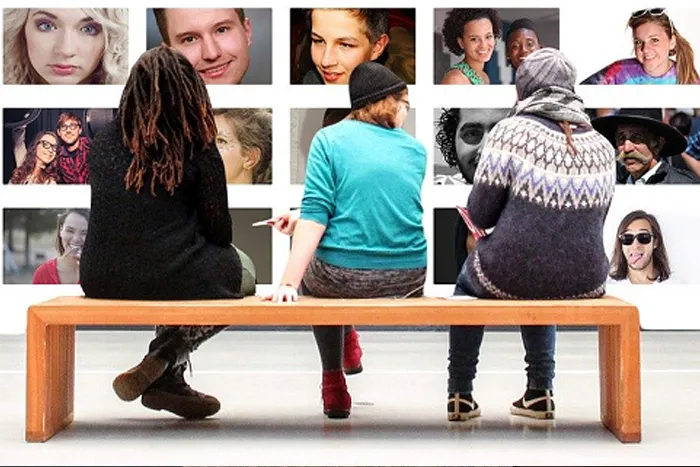Blood pressure (hypertension)
My doctors told me this morning my blood pressure is down so low that I can start reading the newspapers.
-Ronald Reagan
The impact of hypertension
Globally, hypertension causes an estimated 19% of deaths (9.4 million annually) and 7% of disability. Hypertension is responsible for up to 50% of deaths due to heart disease and stroke and is the leading cause of kidney disease and kidney failure.
In Canada, 25% adults have it with 50% of these being not yet diagnosed. 50% of those over 60-years-old have hypertension. Only 16% have adequate blood pressure control.
The costs to the Canadian health care system are enormous: Hypertension accounts for 20 million health care visits annually in Canada. In 2014, 85 million antihypertensive drugs were prescribed at a cost of $2 billion.
Symptoms of hypertension
Symptoms of hypertension are usually not present. This is why it’s known as the “silent killer”. Thus, everyone should have a high index of suspicion that they could have hypertension since it’s so common and has no detectable symptoms. Everyone should regularly have their blood pressure checked.
Patients can have symptoms from hypertension if their hypertension is well advanced and has started to cause other diseases. We will discuss these further in the section “Consequences of hypertension”.
How does hypertension happen?
Primary (Essential) hypertension
In about 95% of cases, there is no simple explanation for why patients have hypertension. That is, there is no specific physiological or psychological cause that can be identified for a given patient’s case of hypertension. For example, in about 35% of patients with hypertension, excessive salt intake can be held responsible, but not in the other 65%, even if they eat the same amount of salt.
There are many variables in our kidneys, lungs, blood vessels, heart, nervous systems that effect the pressure in our cardiovascular system. For all of us, the physiology of how these organs function differs from one another. Moreover, we all have different lifestyles, diets, exercise routines, genetics, stress management skills and psychological makeup taxing these systems differently. So, the pathway to hypertension in each one of us is so unique and hard to pinpoint.
Secondary hypertension
In about 5% of cases, the hypertension occurs secondary to another illness. Common illnesses that cause hypertension as a side effect are:
- Obstructive Sleep apnea
- Kidney disease
- Various endocrine disease like hyperthyroidism
- Vascular like renal artery stenosis
- Drug-induced like anti-inflammatories
- Foods like alcohol and licorice
Consequences of hypertension
Hypertension is responsible for half of deaths due to heart disease and stroke. As hypertension advances, it pounds and scars our blood vessels and strains several organs such as:
- Heart
- Brain
- Eyes
- Kidneys
As a result, it leads to various types of heart disease, brain illness, visual issues, kidney disease and vascular diseases. Basically, anywhere in our body that relies on our blood flow – which is everywhere – can be adversely affected by hypertension.
Hypertension treatments
Managing your cardiovascular risk factors
Since hypertension is the leading risk factor contributing to cardiovascular disease, its presence also causes health care providers to look at your cardiovascular risk factors and make sure they are minimized as much as possible. For example, if you have Diabetes Mellitus, then hypertension on top of that is very damaging to your cardiovascular system. As such, health care providers are more aggressive in lowering blood pressure and sugar in these cases. If you smoke, they will point how much extra risk this is placing on your cardiovascular system and encourage you to quit. They will check your cholesterol levels and and try to reduce it to a level that mitigates your risk of cardiovascular disease.
Medication
Medication is the cornerstone of hypertension management. Hypertension is a serious condition and the benefits of anti-hypertensive medication far outweigh the risks. Moreover, the longer your have hypertension, the more your blood vessels take a pounding and start scarring. This makes them stiffer and more likely to maintain high blood pressure. Some of the damage to your kidneys and other organs from hypertension can be irreversible, so it’s best to be aggressive with managing your hypertension. Your primary health care provider will help you identify the ideal medication(s) for you.
Behavioural & lifestyle interventions
In mild new-onset hypertension, or pre-hypertension (close to hypertension but not quite there), patients will often be asked to bring down their blood pressure with behavioural & lifestyle interventions. This will often avoid the need for medication. Even in cases of established hypertension, behavioural & lifestyle interventions may further bring down your blood pressure, improve blood pressure swings and help you reduce the medications required. Behavioural & lifestyle interventions help to reverse risk factors that have been found to be associated with hypertension (note that they aren’t necessarily responsible for causing hypertension). These interventions will look at improving your diet, reducing your salt & alcohol intake, reducing your body weight if necessary, participating in regular cardiovascular exercise, and managing your stress well.
Relaxation training & biofeedback
So many of the variables in our physiology that contribute to the regulation of blood pressure are controlled by the nervous system. The nervous system can effect the way your heart, blood vessels, kidneys and adrenal glands function and in turn affect your blood pressure. For many people, learning to regulate their nervous system can put the breaks on an overactive nervous system. Relaxation training may have a generalized effect in reducing sympathetic nervous system arousal. Biofeedback uses technology to give you feedback on how well you are doing with your relaxation training. To do this, you need to apply sensors to your body to take readings of specific body processes that are correlated with physiological stress and relaxation. Often these sensors feed their readings into a computer that displays how your body temperature is changing, for example, as you perform relaxation training. This way, you get feedback that your training is progressing efficiently.
Who is a good candidate for managing their hypertension functionally?
Since the specific cause of your hypertension (for the 95% that have primary hypertension) is not known, we can study associations between different behaviours and our blood pressure. This will help you identify an efficient, customized blood pressure management regimen. Everyone is a good candidate for managing their hypertension functionally, whether they are using medication to manage their blood pressure or not. That being said, medication remains the cornerstone of blood pressure management and you should consult your primary health care provider before making any treatment decisions.
Relevant OHIP-funded Group Counselling
Blood pressure management offered in...

Medical Assessment
OHIP-funded medical assessments for behavioural & lifestyle interventions



